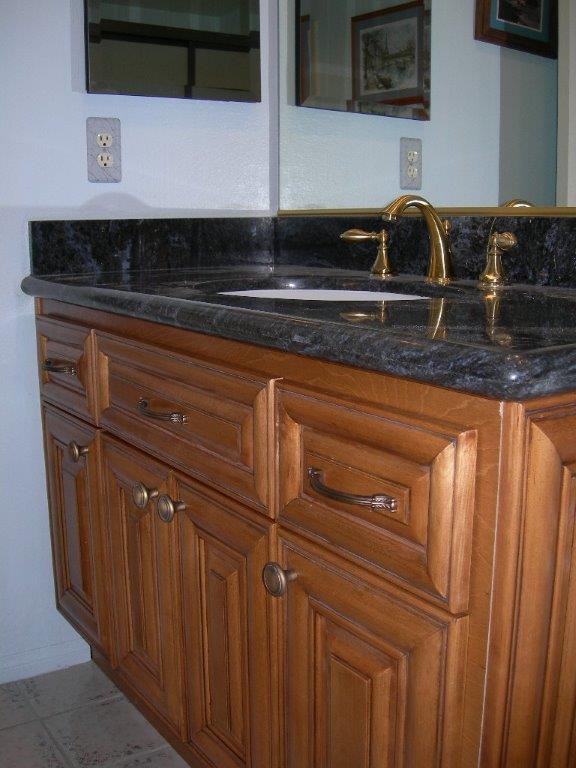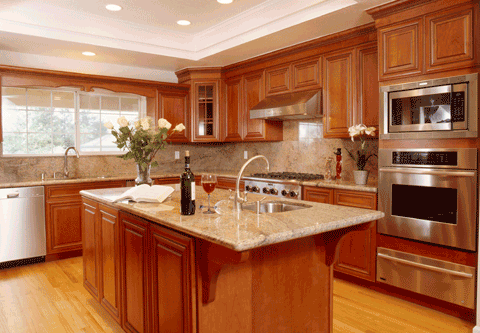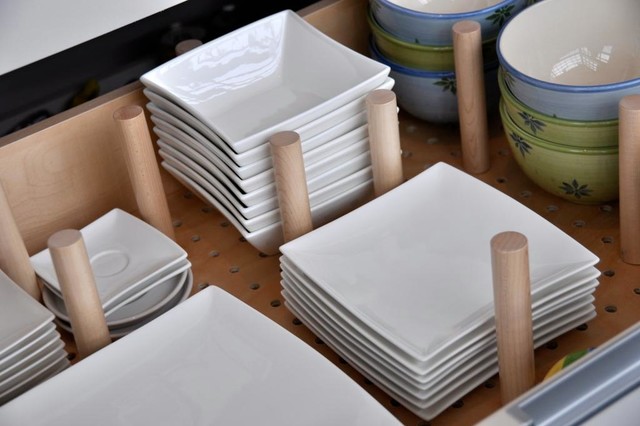Learning About Quartz and Granite Countertops
Let's compare quartz and granite and learn a little about both of them. To begin with, they are both quarried naturally from the ground as huge chunks of stone.After they leave the quarry, granite is cut into the countertop shape you are familiar with. Quartz countertops contain crushed quartz mixed with resin and are manufactured in many different patterns and colors.
What Are the Pros and Cons of Quartz?
Quartz countertops are as strong as granite but are more flexible making them easier to work with.Quartz countertops is much harder making is much less likely to scratch, chip or stain.
Granite countertops require regular sealing and polishing. Quartz countertops can be wiped down with just a little warm water and a mild soap.
Quartz countertops are nonporous and won't draw in moisture from raw food so it won't harbor harmful bacteria.
Quartz countertops have seams. Darker colors may not show seams as much.
Quartz countertops are heavy and do need to be professionally installed.
Cambria Quartz includes a lifetime warranty.
What About Granite?
Here are some of the pros and cons of granite that you should consider.
The appearance of granite is not uniform. Granite comes from the earth and isn't perfectly designed by nature of course. For some people this is a benefit and for others not so much.
Granite countertops will need to be sealed before they are used and this will need be repeated year and after for as long as you use the counters. Granite counters are very porous and are only stain resistant when they are sealed correctly.
While some people consider granite countertops extremely durable, they shouldn't be considered indestructible. They are a natural product and can break or chip if abused.For regular day to day use though, and with regular maintenance, it's a product that can last.
Granite countertops are heavy and require professional installation.
Granite countertops have seams that will show.
Samples will differ slightly from product that you receive. After all, this is a natural stone and samples can't be a 100% true reflection of what you're getting. There may be slight color variations or occlusions that give a different appearance.
What About Cost?
The biggest consideration may be the the cost when choosing between a quartz and granite countertop. In most cases, granite will cost more than quartz. Although can vary with with manufacturer, the pattern and the color you choose, granite can often end of costing a bit more because it's a natural rock This means that because the complete slab needs to be excavated as a solid chunk, that product consumes more time, energy and ultimate more money as well. When it comes to granite slabs, you'll pay the price. A thicker piece will also be more expensive than a thinner piece. See what options we have available for kitchen countertops.
Subscribe to Cabinet Wholesalers's Blog










Comments